Understanding the Landscape of Addiction in Lake City and North Florida
Addiction doesn’t just happen in large cities—it’s a widespread issue that reaches into every corner of the country, including smaller communities like Lake City and the broader North Florida region. From prescription drug misuse to alcohol dependency, the need for quality care has never been greater. In these areas, the social and economic consequences of addiction touch not only individuals but families, employers, and local healthcare systems. What’s encouraging, however, is that North Florida is home to a growing number of compassionate and effective treatment options. These programs provide the support, structure, and care that are necessary for breaking the cycle of addiction and establishing long-term recovery.
Lake City is uniquely positioned in the state—accessible from Gainesville, Tallahassee, and even parts of South Georgia. Its central location makes it a vital hub for those seeking accessible and individualized addiction care. People who live in smaller towns nearby often look to Lake City for a higher standard of behavioral health and substance use disorder treatment. Whether someone is just starting to explore their options or already knows they need help, this region offers a range of pathways into recovery.
Levels of Care Available for Recovery
One of the most important things to understand about addiction treatment in Lake City is the variety of care levels available. People struggling with substance use don’t all need the same intensity of services—what works for one person might not be appropriate for another. The treatment journey often begins with medical detox. Detoxification provides the necessary medical supervision to manage withdrawal symptoms in a safe environment. This is especially critical for substances like alcohol, opioids, and benzodiazepines, which can result in dangerous or even life-threatening withdrawal.
Once detox is complete, many people transition into either residential treatment or a Partial Hospitalization Program (PHP). Residential treatment offers 24/7 support in a structured setting—ideal for individuals who need complete separation from triggers and access to round-the-clock care. PHP, on the other hand, offers the same intensity of therapy but allows individuals to return home or to a sober living environment at night. This flexible option makes it possible for those with external responsibilities to continue treatment without a full inpatient commitment.
Following PHP, clients may step down into an Intensive Outpatient Program (IOP), which includes several therapy sessions per week, or traditional outpatient care. These options focus on continuing support, relapse prevention, and community reintegration. At every level, treatment typically includes individual therapy, group sessions, and life skills education—building a foundation for long-term sobriety.
Addressing Co-Occurring Mental Health Conditions
A major factor influencing recovery outcomes is whether or not a treatment program addresses co-occurring mental health issues. Many individuals dealing with substance use also experience anxiety, depression, PTSD, or bipolar disorder. When these conditions are left untreated, the risk of relapse increases significantly. Dual diagnosis treatment is designed to manage both addiction and mental health challenges concurrently. The integrated approach ensures that each aspect of the person’s well-being is supported.
In Lake City and North Florida, top-tier facilities recognize the need for this type of comprehensive care. They employ licensed mental health counselors, clinical psychologists, and psychiatrists who collaborate with addiction specialists to develop individualized care plans. By addressing trauma, emotional regulation, and past mental health diagnoses, these programs help clients better understand the roots of their addiction. Healing becomes more than abstaining from substances—it becomes about building resilience, confidence, and emotional balance.
Community-Based Recovery and Support Networks
Sustained recovery doesn’t end when formal treatment does. Long-term success relies on consistent follow-up care and the presence of a recovery community. Lake City and the surrounding North Florida area have a growing network of peer support groups, alumni programs, and sober events. These provide a vital sense of connection for individuals who have completed formal treatment but still need structure and encouragement in daily life.
Peer support plays a unique role—it’s not clinical, but it’s just as essential. Being around others who understand the struggle can foster a sense of accountability and motivation. Many local rehab programs maintain active alumni networks, helping former clients check in regularly, attend social events, or mentor others in early recovery. Access to group therapy and community recovery programs like 12-step or non-12-step alternatives further strengthens this network.
The Role of Family and Loved Ones
Family involvement is a cornerstone of effective addiction treatment. The recovery process isn’t isolated—it impacts and includes the entire support system surrounding the individual. In North Florida, many programs include family counseling as a part of their approach. This not only educates family members about addiction but also helps repair strained relationships and build healthy boundaries moving forward.
When family is involved in treatment, outcomes tend to improve. Communication becomes clearer. Misunderstandings are addressed. And perhaps most importantly, loved ones learn how to support the individual without enabling harmful behavior. These lessons are particularly crucial during the transition from inpatient or PHP care back into everyday life. Families who participate in recovery create an environment that fosters growth and reduces the chance of relapse.
Overcoming Barriers to Accessing Treatment
One of the most common reasons people hesitate to seek help is concern about cost or insurance coverage. Fortunately, many addiction treatment centers in Lake City and across North Florida accept a wide range of insurance plans—including Medicaid and private providers. Some also offer payment plans, financial assistance, or help navigating insurance verification.
Another obstacle is time—many people worry they can’t afford to take weeks or months away from work, school, or caregiving responsibilities. Flexible treatment options like IOP or evening PHP help remove that barrier by allowing clients to attend treatment during the day and return home at night. Others are hesitant because of stigma—fear of judgment from their communities or employers. Local treatment centers in North Florida work hard to create confidential, supportive environments where healing takes precedence over fear.
Transportation can also be a challenge, particularly for those in rural parts of the region. Many centers provide transportation services or can refer individuals to local programs that assist with travel to and from treatment. By addressing these practical concerns, facilities help make treatment more accessible to everyone who needs it.
Why Local Treatment Matters
There’s a strong case to be made for seeking treatment close to home. While some individuals benefit from going out of state for a complete change of environment, many others thrive when they receive care in their own community. Local treatment allows for family involvement, easier transition between care levels, and ongoing participation in outpatient and alumni services.
In Lake City and North Florida, local rehab programs offer both quality and convenience. Clients are often able to build relationships with nearby professionals and organizations that will support their recovery long after formal treatment ends. They also stay connected to their communities in a way that helps bridge the gap between inpatient care and real-life responsibilities.
Taking the First Step Toward Recovery
If you or someone you love is struggling with substance use, taking the first step may be the hardest—but it is also the most important. Addiction thrives in secrecy and shame. Healing begins when you choose to ask for help. The rehab programs available in Lake City and throughout North Florida provide a safe, welcoming space to begin that journey.
Treatment is not one-size-fits-all. Whether you’re looking for full-time residential care or a flexible outpatient schedule, you have options. Whether you need help managing anxiety or depression alongside addiction, support is available. Whether you have insurance or need financial guidance, someone can help you navigate the process.
Reach out, ask questions, and explore your options. Recovery is possible—and it starts right here in your community.



